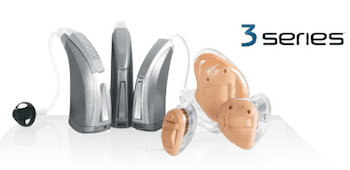According to a survey conducted by Hear the World, a global initiative by leading hearing system manufacturer Phonak, Stäfa, Switzerland, despite significant advances in hearing technology, hearing aids were associated with old age more than any other accessories surveyed, including glasses, a wheelchair, crutches, and canes for the blind. This misperception has serious consequences for the 700 million people worldwide living with hearing loss, says Phonak.
According to the survey, which polled 4,405 people between the ages of 14 to 65 years old in the United States, France, Germany, Switzerland, the UK, and Italy, not wanting to admit to having hearing loss in public was among the top three reasons for not wearing a hearing aid.
While 93% (US: 88%; UK: 87%; Germany: 94%; France: 98%; Italy: 96%, and CH: 96%) responded that they would wear a hearing aid if it was necessary, previous research has indicated that many people with hearing loss do not in fact wear a hearing aid. In the United States and United Kingdom alone, only one in four people requiring a hearing device actually wear one.
The first devices created to assist those with hearing loss appeared in the 17th century and were called “ear trumpets.” Due to the stigma associated with the condition since that time, “ear trumpets” were often hidden in fans, integrated into walking sticks, and some were even camouflaged as diamond-encrusted pieces of jewelry.
By the 1920s, hearing aids were developed that were small enough to carry in a handbag, and by the 1940s, the first pocket devices were introduced. In the early 1960s, the behind-the-ear device (BTE) was developed and has since then undergone rapid innovation as microelectronics has progressed.
Today’s hearing aids work with digital technology and are equipped with powerful computer chips, ensuring better sound quality, wireless connectivity, modern design, and ever smaller dimensions to help users wear their hearing aids with minimal detection.
Often neglected due to the stigma associated with the condition, hearing loss can create social and emotional barriers for the individuals living with it, or the families of those it affects. In fact, research shows that when left untreated, hearing loss can lead to reduced earning power, disruptions in family life, and can cause a wide range of other psychological problems.
The survey also found that frustration (46.8%) isolation (45.3%) and fear (36.8%) were the feelings most often associated with untreated hearing loss.
As a means of addressing this lack of information around hearing loss, Hear the World was founded in 2006 to raise awareness of hearing-related issues around the world.
[Source: Hear the World]




